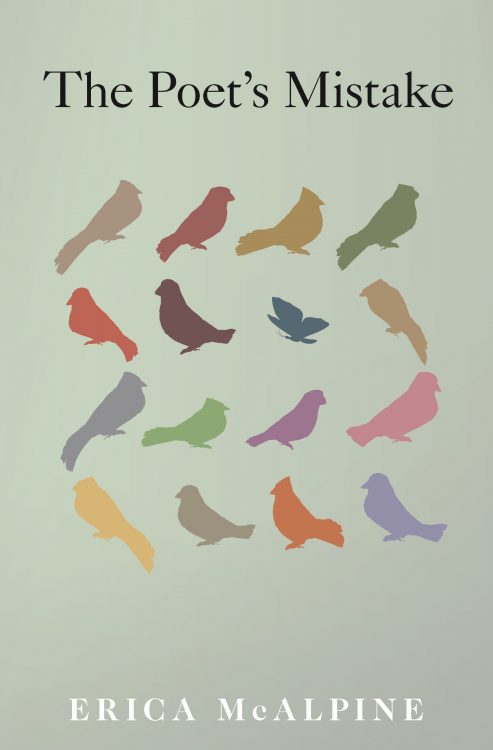Reading Gone Awry
9 Mar 2021|Erica McAlpine
- Research

We’ve all done it—used a word incorrectly, believing it means one thing when it really means another: saying “disinterested” when we mean “lacking in interest,” or “prostrate” instead of “prostate.” Mistakes like these are a poet’s occupational hazard; and contrary to popular belief, a “poet’s license” only goes so far.
Take the case of Robert Browning, who in 1841 published a long dramatic poem called Pippa Passes about a young Italian girl working in the silk mills of Asolo. Browning composes the following lines for innocent Pippa to sing at the end of her day off work:
Day’s turn is over, now arrives the night’s.
Oh lark, be day’s apostle
To mavis, merle and throstle,
Bid them their betters jostle
From day and its delights!
…
Then, owls and bats,
Cowls and twats,
Monks and nuns, in a cloister’s moods,
Adjourn to the oak-stump pantry!
Wait a second: did she say “twats”? “Then, owls and bats/cowls and twats”—here is a word so singularly unexpected from sweet Pippa’s mouth as to render the whole song preposterous. What could this slang term for female genitalia be doing alongside owls, bats, and especially a monk’s cloak? Surely Browning means something else.
And yet as far as we know, not a single reader questioned Browning on this point until the philologist Frederick J. Furnivall, one of the co-creators of the Oxford English Dictionary, wrote him about it nearly thirty years after the poem’s publication. Browning’s reply to him reveals an astonishing mistake:
In the Royalist rhymes entitled ‘Vanity of Vanities, or Sir Harry Vane’s Picture,’—
wherein Vane is charged with being a Jesuit—occur these lines
‘Tis said they will give him a Cardinal’s hat:
They sooner will give him an old nun’s twat!”
The ballad is partly quoted in the Appendix to Forster’s Life of Vane, but the above lines are left out—I remember them, however, and the word struck me as a distinctive part of a nun’s attire that might fitly pair off with the cowl appropriated to a monk.”
Browning’s letter appeals to lines from an anonymous poem first published in 1660—and the raunchy jibe launched by the seventeenth-century balladeer appears to have flown straight past him. Whether Browning realises his mistake by the time he responds to Furnivall is less clear, but if he does, his letter is certainly very coy. Nor does he make any effort to emend the poem in subsequent printings as he does with minor mistakes elsewhere. We must assume that the vulgarity in “Vanity of Vanities” was simply lost on Browning, at least initially, and that the falsely phrased nun’s habit in his own poem is an extreme case of reading gone awry.
Browning’s readers immediately want to absolve him—not just because of his innocence around the vulgar word but also because his error seems to stem from such a worthy cause. What copious reading he has done! What a memory for words! He must have been especially pleased to have remembered such an unexpected word to rhyme with “bats” that simultaneously complemented his analogies between owls and monks, bats and nuns. His mistake may reveal ignorance—but it also speaks favourably to his voracious appetite for verse.
Which begs the question: would we approach Browning’s mistake differently had it merely been a mistake in his language, rather than in his reading? Let me answer by way of another example. At the end of a different poem, “Childe Roland to the Dark Tower Came,” Browning writes the following words:
I saw them and I knew them all. And yet
Dauntless the slug-horn to my lips I set,
And blew. “Childe Roland to the Dark Tower came.”
The horn’s triumphant blow closes the poem on a distinctly high note—except for one little problem: there is no such instrument as a “slug-horn.” The word is an archaic form of “slogan” meaning a battle cry. Where did Browning get the mistaken idea that a slug-horn was a horn, rather than a sound? From his extensive reading, of course. “Slug-horn” does not appear in the dictionary Browning used, but the poet Thomas Chatterton used the word erroneously in his poem “Battle of Hastings.” Browning admired Chatterton’s poetry and probably stole the error unknowingly. Mistakes are passed on this way, by reading, from poet to poet. For instance, Seamus Heaney, perhaps with Browning’s poem in mind, uses his own “slug-horn” in the “Glanmore Sonnets.” Heaney likely takes Browning at his word, just as Browning does of Chatterton. Discovering the lineage of mistakes like these brings us closer to our poets—warts and all. As Browning himself once said of Percy Shelley, the poet he admired most: “Let the whole truth be told of his worst mistake.” Now we can repay the favour.
The material in this blog post is adapted from Dr McAlpine’s The Poet’s Mistake (Princeton University Press, 2020).
Image Credit: Princeton University Press
Category: Research
Author

Erica
McAlpine
Professor Erica McAlpine teaches 19th-, 20th- and 21st- century literature and has special interests in British Romantic and 20th-century American poetry. John Keats, John Clare, Robert Frost, and Elizabeth Bishop are a few of her favourite writers. Her current book project is about mistakes in poems.